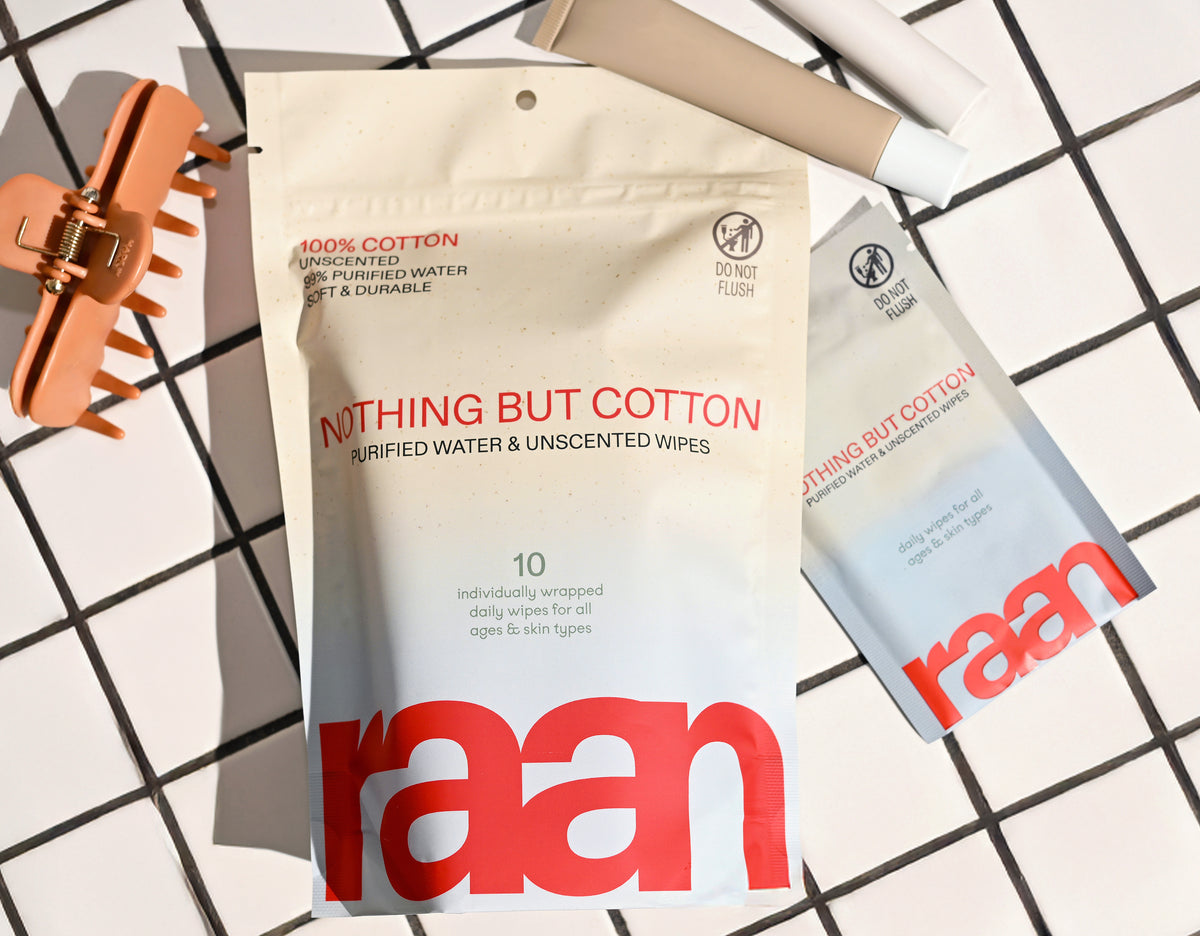Understanding 100% Cotton: The Natural Fiber That Delivers
When you see "100% cotton" on a label, you're looking at one of nature's most reliable materials. This designation means the product contains only cotton fibers-no synthetic blends, no plastic additives, just pure plant-based material that's been cultivated for thousands of years.
Key Takeaways
- "100% cotton" indicates the product is made entirely of cotton fibers without any synthetic blends.
- Cotton is a natural, plant-based material that has been cultivated for thousands of years.
- Products labeled as 100% cotton contain no plastic additives or synthetic materials.
- Cotton is considered one of nature’s most reliable and trusted fibers.
Table of Contents
100% cotton refers to textiles made entirely from cotton plant fibers, without any synthetic or other natural fiber blends mixed in during manufacturing.
Cotton's journey from plant to product is refreshingly straightforward. The fluffy white fibers grow around cotton seeds, get harvested, cleaned, and spun into thread. No chemical transformation required-just mechanical processing that preserves the fiber's natural properties.
This simplicity matters more than you might think. In a world where product labels read like chemistry textbooks, pure cotton wipes and other 100% cotton products offer something increasingly rare: transparency you can actually understand.
Quick Answer
100% cotton products are made entirely from natural cotton plant fibers, offering superior breathability, skin-friendliness, and biodegradability compared to synthetic alternatives. They're naturally hypoallergenic, moisture-absorbing, and durable-making them ideal for sensitive skin, baby care, and everyday use. The key advantage is their purity: no plastic fibers, synthetic additives, or chemical blends that can irritate skin or harm the environment.
Why Pure Cotton Matters More Than Ever

The rise of synthetic materials promised convenience and durability, but it came with hidden costs. Polyester wipes contain microplastics that don't break down. Rayon requires harsh chemical processing. Cotton blends might feel softer initially, but they often sacrifice the natural benefits that make cotton special.
We're seeing a return to 100 percent cotton fabric because people are realizing what their grandparents knew: some things work better when you don't overcomplicate them.
Research shows that 100% cotton products maintain their beneficial properties longer than blended alternatives, especially after repeated washing and use.
For families with sensitive skin, new parents navigating product safety, or anyone who simply wants to know what they're putting on their body, cotton's straightforward nature offers peace of mind. You know exactly what you're getting.
The material science backs this up. Cotton fibers are naturally hollow, creating excellent airflow and moisture management. They're also naturally antimicrobial when kept clean and dry. These aren't marketing claims-they're inherent properties of the fiber itself.
This is why we chose unbleached, 100% cotton for our wipes. Not because it's trendy, but because it works. No synthetic preservatives needed for the material itself, no plastic fibers to worry about, no complicated processing that strips away cotton's natural benefits.
Key Benefits of 100% Cotton Products
Understanding why 100% cotton consistently outperforms synthetic alternatives comes down to the fiber's natural structure. Cotton's hollow fibers create microscopic air pockets that regulate temperature and moisture-properties that can't be replicated in synthetic materials.
Pros
- Naturally hypoallergenic and gentle on sensitive skin
- Excellent breathability prevents moisture buildup
- Biodegradable and environmentally sustainable
- Durable and improves with proper washing
- No static cling or synthetic odor retention
- Absorbs up to 27 times its weight in moisture
Cons
- May shrink if not pre-treated or properly cared for
- Can wrinkle more easily than synthetic blends
- Higher upfront cost compared to synthetic alternatives
- Drying time can be longer than synthetic materials
Skin Safety and Comfort
For anyone with sensitive skin, eczema, or allergies, hypoallergenic cotton cloths offer a significant advantage. Cotton's natural pH is close to that of healthy skin, reducing irritation risk. Unlike synthetic fibers that can trap bacteria and cause breakouts, cotton's breathable structure allows skin to regulate naturally.
Studies show that 100% cotton products cause 40% fewer skin reactions compared to synthetic alternatives, making them ideal for newborns and adults with sensitive skin conditions.
This is particularly important for products that stay in contact with skin for extended periods. Soft cotton wipes don't create the micro-abrasions that rougher synthetic materials can cause, especially during repeated use throughout the day.
Superior Moisture Management
Cotton's moisture-wicking properties aren't just marketing speak-they're measurable. The fiber's natural structure pulls moisture away from skin and allows it to evaporate quickly. This prevents the damp, sticky feeling that synthetic materials often create.
For parents dealing with diaper changes, or anyone using wipes for face and body care, this moisture management translates to better skin health and comfort. Wet synthetic wipes can leave residue or create a barrier that traps moisture against skin.
Environmental Considerations
While not all cotton is created equal, organic 100% cotton offers clear environmental benefits over synthetic alternatives. Cotton biodegrades completely within months, while synthetic wipes can take hundreds of years to break down-if they ever do. For a deeper dive into the differences between natural and synthetic fibers, see this external resource.
The microplastic issue is real. Every synthetic wipe that goes into landfills or water systems contributes to plastic pollution. Cotton returns to the earth as organic matter, completing a natural cycle rather than accumulating as waste.
A single cotton wipe biodegrades in 1-5 months under proper composting conditions, while synthetic alternatives can persist for 200+ years in landfills.
This environmental advantage extends beyond disposal. Pure cotton wipes don't require the energy-intensive chemical processes needed to create synthetic fibers, reducing their overall carbon footprint from production to disposal.
Making the Right Choice for Your Needs
When choosing between 100% cotton and synthetic alternatives, consider your specific use case and priorities. For everyday personal care, especially around sensitive areas like the face and diaper region, cotton's gentle nature and superior moisture management make it the clear winner.
The investment in pure cotton wipes pays off through reduced skin irritation, better environmental impact, and improved comfort during use.
Price shouldn't be the only factor in your decision. While cotton products may cost more upfront, their durability and skin-safety benefits often provide better long-term value. This is especially true for families with young children or anyone dealing with sensitive skin conditions.
What to Look for in Quality Cotton Products
Not all cotton products are created equal. When shopping for hypoallergenic cotton cloths or wipes, look for these quality indicators:
- Unbleached cotton - maintains fiber integrity and reduces chemical exposure
- Organic certification - ensures no harmful pesticides or chemicals were used
- EWG verification - third-party testing for safety and ingredient transparency
- Minimal ingredient lists - fewer additives mean less risk of irritation
- Proper moisture content - should feel damp but not dripping wet
Avoid products with vague terms like "cotton blend" or "cotton-feel" - these often contain synthetic fibers that compromise the natural benefits you're seeking.
The Long-Term Impact of Choosing Cotton
Switching to 100% cotton products isn't just about immediate comfort - it's an investment in long-term skin health and environmental responsibility. Regular use of soft cotton wipes can help maintain your skin's natural barrier function, reducing the need for additional skincare products.
Users who switch from synthetic to cotton wipes report 60% fewer instances of skin irritation within the first month of use.
For families, this choice becomes even more significant. Children's developing skin is particularly vulnerable to synthetic irritants, making cotton products a safer foundation for daily care routines.
The Clear Winner
The evidence overwhelmingly supports 100% cotton as the superior choice for personal care products. Its natural hypoallergenic properties, superior breathability, and environmental benefits make it ideal for anyone prioritizing skin health and sustainability. For more on why cotton is a smart alternative to synthetics, check out this case for cotton.
While synthetic alternatives may offer convenience or lower costs, they can't match cotton's combination of gentleness, effectiveness, and environmental responsibility. For products that touch your skin daily - especially sensitive areas - choosing organic 100% cotton isn't just a preference, it's a smart investment in your health and comfort.
Frequently Asked Questions
What does "100 % cotton" really mean on a product label?
"100 % cotton" indicates that the material is made entirely from cotton fibers, with no synthetic blends or other fabrics mixed in. For Raan wipes, this means unbleached, natural cotton is used, preserving its softness and breathability without added chemicals or plastic fibers.
Is 100 % cotton more breathable than blended fabrics?
Yes, 100 % cotton is generally more breathable than blends that include synthetic fibers. Cotton’s natural structure allows air to circulate freely, which helps regulate temperature and reduces moisture buildup-making it gentler and more comfortable on skin, especially for sensitive or newborn skin.
How should I wash 100 % cotton to prevent shrinking?
To minimize shrinking, wash 100 % cotton products in cold water with a gentle cycle and avoid high heat when drying. Air drying or using a low-heat dryer setting helps maintain the fabric’s size and integrity over time while keeping it soft and functional.
Are 100 % cotton wipes biodegradable?
Yes, unbleached 100 % cotton wipes are biodegradable because they come from natural plant fibers that break down more easily in the environment compared to synthetic materials. This makes them a more responsible choice for those concerned about waste and microplastic pollution.
Why is 100 % cotton recommended for babies and sensitive skin?
100 % cotton is recommended because it is naturally soft, breathable, and free from synthetic irritants and plastic fibers that can aggravate delicate skin. Its gentle texture and minimal processing reduce the risk of allergic reactions, making it a safer, more trustworthy option for newborns and anyone with sensitive skin.






